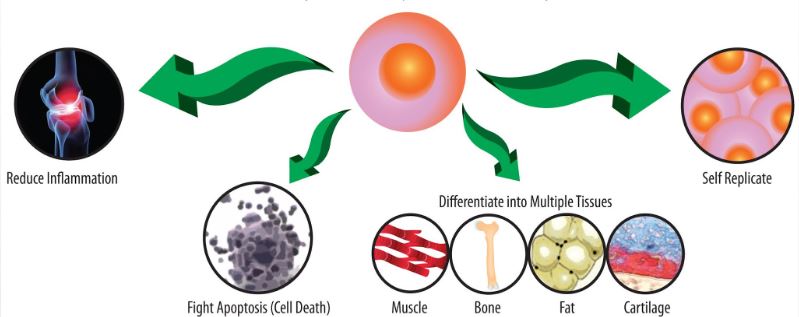Subtotal $0.00
Adult mesenchymal stem cell (MSC) therapy is a form of regenerative medicine that utilizes the therapeutic potential of mesenchymal stem cells derived from adult tissues. Mesenchymal stem cells are a type of multipotent stem cell that can differentiate into various cell types, including bone cells, cartilage cells, fat cells, and muscle cells. These cells have the ability to self-renew and differentiate into specialized cells, making them valuable for tissue repair and regeneration.
In adult mesenchymal stem cell therapy, stem cells are isolated from the patient’s own body (autologous transplantation) or from a donor (allogeneic transplantation) and then expanded in the laboratory to obtain a sufficient number of cells. The expanded mesenchymal stem cells are then reintroduced into the patient’s body through various administration methods, such as intravenous injection, local injection, or direct implantation into the affected tissue. The therapeutic potential of adult mesenchymal stem cells lies in their ability to modulate the immune response, promote tissue regeneration, and secrete various factors that can stimulate the healing process.
These cells have been studied for their potential application in treating a wide range of medical conditions, including orthopedic injuries, cardiovascular diseases, autoimmune disorders, neurological disorders, and more. Mesenchymal stem cell therapy holds great promise, and the field is undergoing extensive research and clinical trials to better understand its efficacy, safety, and optimal protocols for different conditions. Regulatory authorities in different countries have varying levels of approval for mesenchymal stem cell-based therapies.
It is essential to consult with qualified healthcare professionals and clinical experts for accurate and up-to-date information on the specific applications and availability of adult mesenchymal stem cell therapy for each individual’s healthcare needs.



